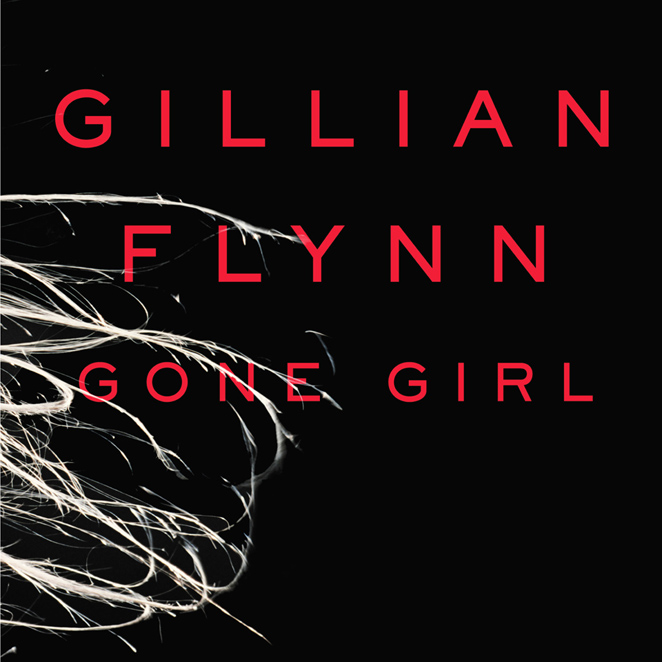Gone Girl

I’m not generally in the practice of reviewing books but in this case I just could not hold myself back. There were so many things that rubbed me the wrong way about Gone Girl that it was almost painful for me to finish, but knowing it would be a twisty ending made it essential to formulate a complete opinion of the novel.
First the disclaimers:
1. Spoilers ahead!
2. I listened to the audiobook which I knew from the beginning was a huge mistake. In a story told in the first person with massive amounts of dialogue, the voice and acting abilities of the storyteller can really affect the tone of the tale. From the outset these narrators irritated me. Granted, they’re irritating characters but their inflections and characterizations of the secondary characters made a story I already disliked much worse.
Novel as film
It’s clear from the writing style as well as the numerous film and television references that this book is based in the world of cinema. Considering the state of the current film industry, where studios are looking for known properties instead of original screenplays, it makes sense that Gillian Flynn (a former writer for Entertainment Weekly) would write an easily adaptable book. Yet the writing relies too heavily on the language of cinema.
When describing situations and their emotions, the characters often compare their present states to being in a movie. This notion is repeated ad nauseum. Characters are described as playing their parts in the crime drama version of the story. But what movie? Certainly not a Korean crime drama like The Yellow Sea. Or a television show like The Killing (season 3 in particular). Flynn references only pop culture and only the most generic of it.
Flynn is constantly relying on the viewer’s knowledge of popular culture to fill in the blanks of her story. It’s like CSI! It’s like Law and Order! This feels like a cheap and easy way to construct her fictional universe. There is no new territory covered. Often when Flynn riffs on these movie/television tropes she makes sure to tell the reader that she is doing that. Yet this becomes less of an affectation of the characters, since it’s applied to all of them, but instead a shortcoming of Flynn’s writing.
I’ll admit, even though I had heard about this novel for months, I only read it when I knew it was going to be made into a movie directed by David Fincher. I’m curious how he’ll reinterpret this story, as someone who is much better at depicting the male perspective.
Gone Women
When the narrative flips mid book, the reader has been set up with a standard bad husband / victimized wife dichotomy. As the true nature of Amy is revealed, we see that she is not only alive, but not the victim we are lead to believe she is. Instead she’s cold, calculating and psychotic. Instead of turning to a reversal of standard roles, Flynn falls back on the stereotypical gender assumptions. Amy is a “psycho bitch.” Both Nick and Amy are liars but Amy doesn’t just make up things about herself, she lies about others. She lies about being raped and abused. Of course this woman lied about being raped; that’s a thing that women do! Of course she’s the psycho one; women are crazy! Unfortunately, as much as we, the enlightened readers, would like to believe otherwise, these are things that many people believe. In creating a character that follows these established conventions, Flynn perpetuates them, reinforcing them in the collective consciousness.
It’s obvious that Flynn is aware of the gender lines she tries to balance on because she uses the words “feminist” and “misogynist” so many times it’s almost as if she’s beating you over the head with them. She flies them like banners over her characters, trying to absolve them or implicate them. She never actually describes the actions of any characters that would classify any of them in either of these categories (with the exception of Nick’s father). Most of the characters have so little development there isn’t much to be said about any of them.
I find it telling that Nick’s twin sister, Go, though a fairly significant character in the story, has basically no personality. She is there only as a reflection of Nick: a sympathetic and safe, female perspective of him. Even Amy describes herself as not having a personality; the she is pure construction. Who are these women? Though Amy’s conniving and vindictive nature is apparent at the end, there is no depth to her desires beyond controlling Nick. These are characters always seen from the outside. Even though we hear Amy’s voice, we never know her.
Le Fin
If you’d made it this far, I should take the time to note I didn’t hate everything about the book. Prior to reading Gone Girl, I enjoyed Gillian Flynn’s Sharp Objects. Even though it was somewhat predictable, it was still unique and didn’t follow all the rules. Gone Girl is definitely a step forward for Flynn in that the story is much more nuanced and complex. The characters may be flat but the plotting is well thought out.
The most fascinating part of Gone Girl is how Flynn explores the relationship politics of a failing marriage. Flynn pushes familiar situations to the extreme, but in the beginning there’s just enough humanity in there for the reader to identify in some way.
So what did you think of Gone Girl? Did you love it? Did you hate it? Was is just sort of okay?







I’m so glad you reviewed this so thoughtfully – it definitely was a page-turner – but I was annoyed at the ending, it just seemed cheap.
I decided not to read it and from your review, it sounds like I made the right decision!